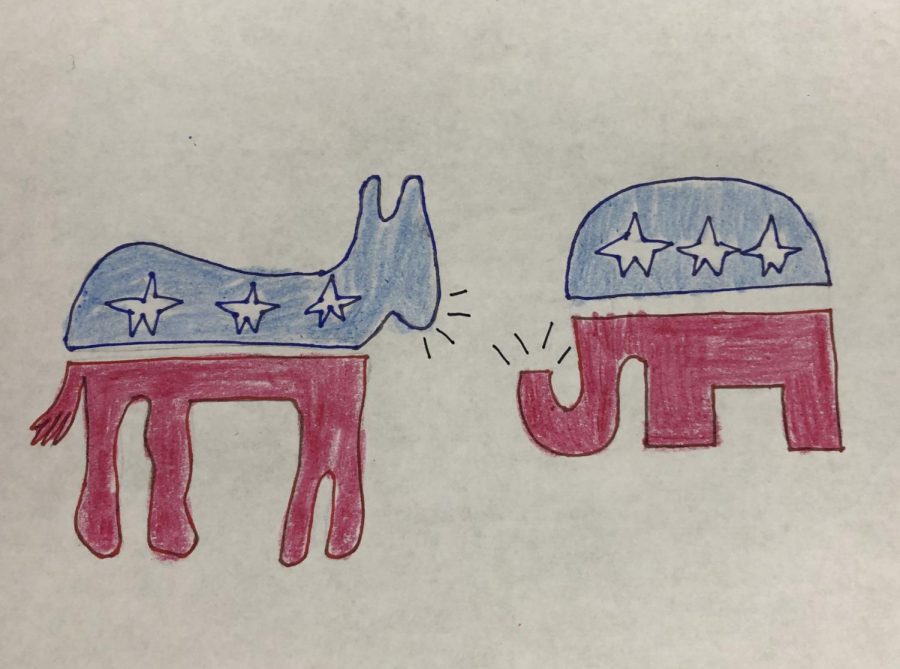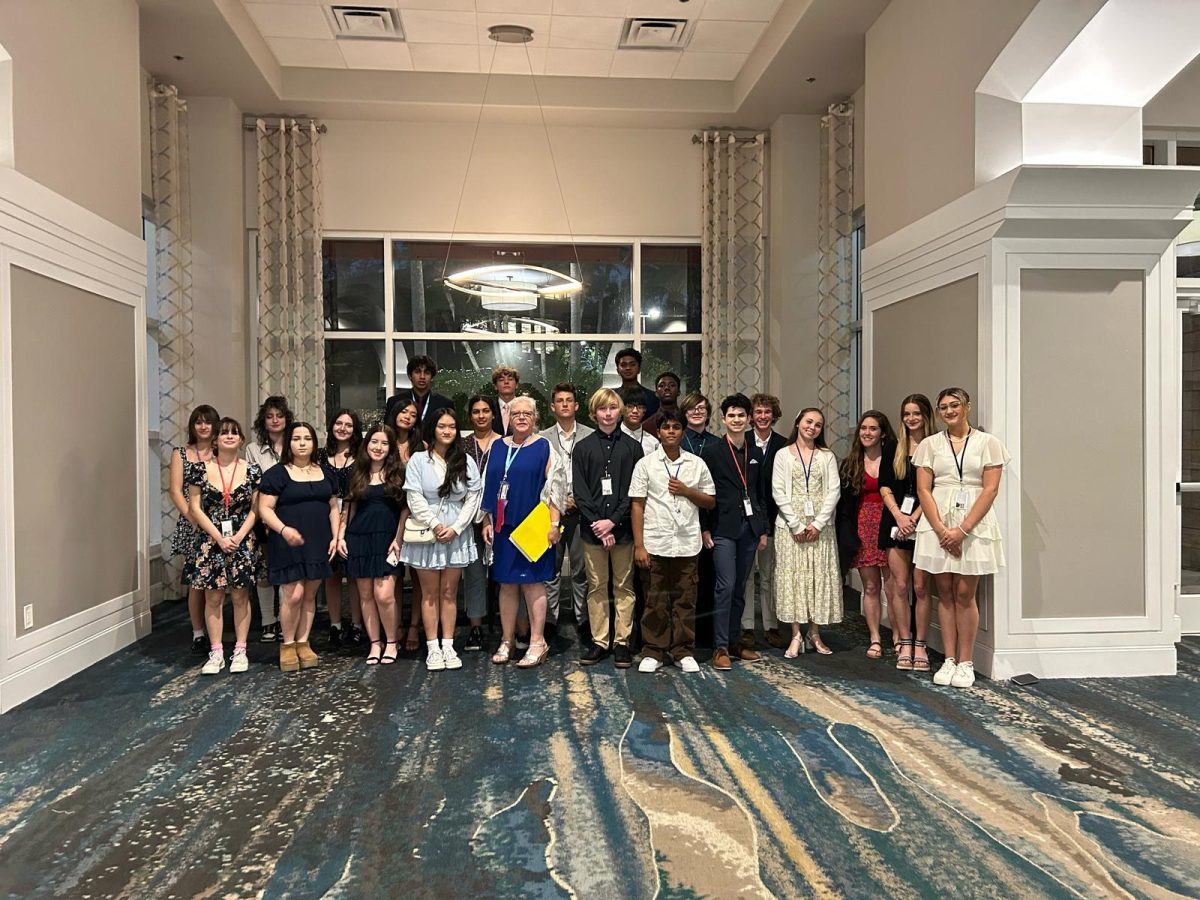Politics shouldn’t divide us
Political parties should not be division lines.
A drawing illustrating an argument between the Republican and Democratic parties (illustration by A. Woodward).
February 14, 2020
We’ve gotten to the point where politics have caused rifts, generalizations and judgement. In a country where we need to work together to achieve a better United States, politics are increasingly turning us against each other.
It’s 2020, which means that politics are on steroids. With the upcoming election, it’s a no-brainer that there’s more drama and debates, but not just between candidates. Too often, I see people getting mad at others and creating tension over conflicting opinions, which makes me think: why do people let politics control so much of how they interact with others?
Even among those who can’t vote, political views are a way to identify people, but also judge them. Off the top of my head I can name a handful of people that I don’t know well, but I’ve heard, “oh, I think they’re a republican”, accompanied by an awkward expression. And that puzzles me, because shouldn’t we be listening to others’ beliefs and at the bare minimum, respecting them? There are always going to be conflicting views, but opposition is not synonymous with incorrect.
Generalizing and judging people because we don’t agree with them is unhealthy and is only going to make things worse. We’re taught to respect people if they’re different from us, so why are politics the exception?
I understand that some opinions, like immigration and abortion, have life-changing consequences and are much more serious than other political policies, but just because you don’t agree with someone doesn’t mean you shouldn’t listen to their opinion. We need to listen to each other and talk civilly instead of automatically disagreeing and invalidating different opinions.
Americans have become so caught up in party loyalty that they tend to focus on whether something is blue or red, not if it’s an objectively good policy. People are willing to be open-minded and listen to others, until they hear something they don’t agree with. Disagreements can lead to conversations that can either educate or offer a different perspective on an issue, which never hurts. But pride gets in the way, which is inhibiting us from being better citizens and working together.
Not every republican shares the same views and not every democrat thinks the same way. These parties hold some core values, but a citizen should think for themselves, not for their party. Fiscal and social issues require personal evaluation and parties need to think about the common good, not what’s immediately good for them. Parties were not created to do the thinking for you and by making assumptions about others we’re defeating the purpose of having parties.
I’m not saying that everyone has to get along and agree perfectly, but we need to stop generalizing people based on their political views. It’s something that everyone is guilty of, because it’s been ingrained in us by our parents, our teachers and even our friends. But we can change that. Change is coming and working together instead of isolating ourselves from opposition is essential to making the United States a better place.











